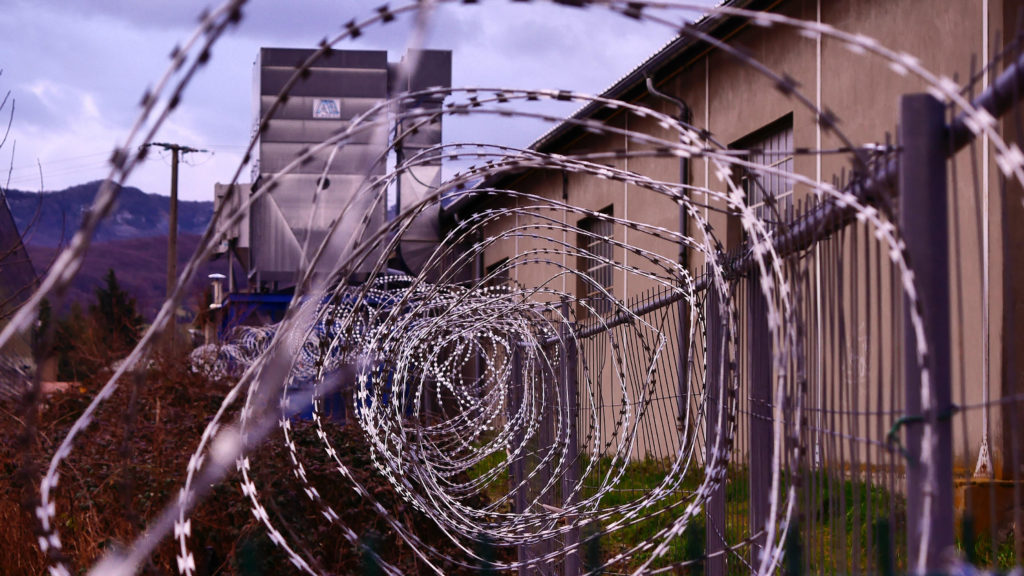Traci Newell had plans when she married her husband, Mark. In particular, the couple wanted children. Those plans came to fruition but took a path different from most.
However, it wasn’t a path different from many.
“We experienced years of unexplained infertility,” she said. “We were going to go through private adoption. The birth mother lived in our home during the pregnancy and I took her to doctor appointments. However, about six weeks before the baby was born, she changed her mind.”
A period of grieving followed that, she added. But it also planted in her heart the desire to work with birth moms in adoption and foster care situations. The Newells went on to become foster parents and then adoptive parents to two girls. Today, Traci works with Lifeline Children’s Services as its national program director for Families Count, which focuses on family restoration and preservation for parents seeking to be reunited with their children.
April 24–30 is National Infertility Awareness Week. According to RESOLVE: The National Infertility Association, 7.3 million Americans are currently facing infertility.
Newell’s experience and career have allowed her to see the importance of addressing infertility for those seeking to adopt or become part of the foster care process.
Adoption not the ‘solution’
“Lifeline decided to add the element of infertility to our pre-adoption training,” she said. “We know that adoption and foster care are not the ‘solution’ to infertility. What I mean by that is the Lord can choose to complete a family through adoption, but the kind of wounds that happen with infertility can exist for a lifetime. That’s something a lot of people don’t recognize.”
It manifests in a sense of loss, she noted. At the same time, foster and adoptive children are walking through their own loss, even if they don’t realize it quite yet.
“If there’s unresolved loss due to your journey through infertility it’s going to be difficult to meet that child where he or she is,” she explained.
Chris Johnson was in pastoral ministry for 24 years before joining Lifeline as national director for church partnerships and government affairs. During the ten-year period he and his wife, Alicia, were foster parents they adopted seven children to join their three biological children.
In hindsight, he feels he could have addressed the pain of infertility from the pulpit more often.
“God’s Word puts a lot of emphasis on marriage and how it is to build a godly heritage [through having children],” he said. “We emphasize training our children, and we should. But it can create a sense that if we don’t have children, we don’t measure up.
“We ask why God won’t trust us with them. People struggle with that.”
Before coming to Lifeline, Johnson was a special adviser to former Kentucky Gov. Matt Bevin in the area of faith- and community-based initiatives. That included getting more churches involved in improving child welfare.
‘God has a purpose’
“The reality is that God has a purpose and plan for each individual. It looks different for everyone,” said Johnson, a deacon at Valleydale Baptist in Birmingham who volunteers in the church’s foster care ministry. “That doesn’t mean you’re the second option. … There are children needing a gospel-centered family.”
Betty and Gene Hall felt that way. In 1982 the Trion, Georgia, couple decided to become foster parents. They worked at the local mill churning out appliance parts, but the labor had begun to wear Betty down. She would stay home with their three children, but wanted to do more.
“I was eleven years old when they started,” their daughter, Becky Whited, said. “My brothers were teenagers. Someone at our church suggested my parents would be good at [foster care].”
They were. More than 200 local children experienced — at least for a season — a home founded on the Word. Before Betty died in 2013, the community honored her and Gene for their efforts.
Gene would continue as a foster parent until 2020. He served as a deacon for 27 years at Central Avenue Baptist Church. He remains an honorary deacon while battling health issues.
“Gene and his family have humbly served the Lord by placing others above themselves,” said pastor Brandon Bishop. “Truly following Jesus is loving your neighbor no matter what that neighbor can do for you.
‘Faithfulness’
“Their faithfulness to their biological children and their children through foster care has impacted many in the church, including me.”
The pain of infertility led Newell into a ministry of helping children and parents find each other, whether through reunification or adoption. “The Lord can use our greatest sorrows to create a desire to reach out to those who are hurting,” she explained.
In a related sense, decades of involvement in foster care brought many challenging situations to the Hall home. For those children who stayed, left and came back, the gains lost became painfully clear.
“They loved children who didn’t have the things they needed,” said Whited. “They tried to give them a different world. I saw many of those children come to Christ. Mom and dad always fought for those kids.
“They stepped up. They tried to make a difference.”
Reprinted from Baptist Press (baptistpress.com), news service of the Southern Baptist Convention






Share with others: